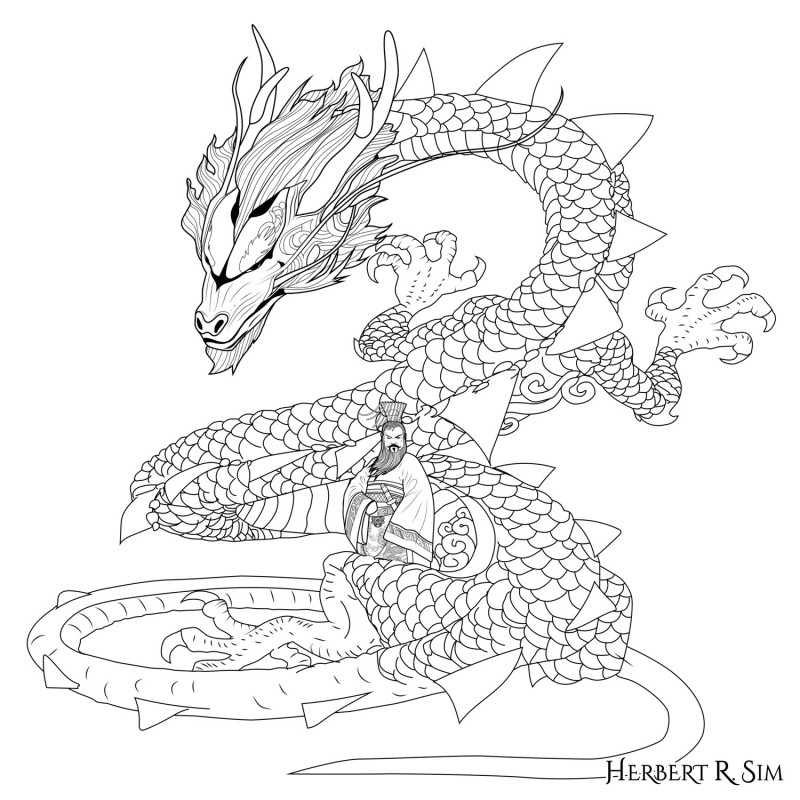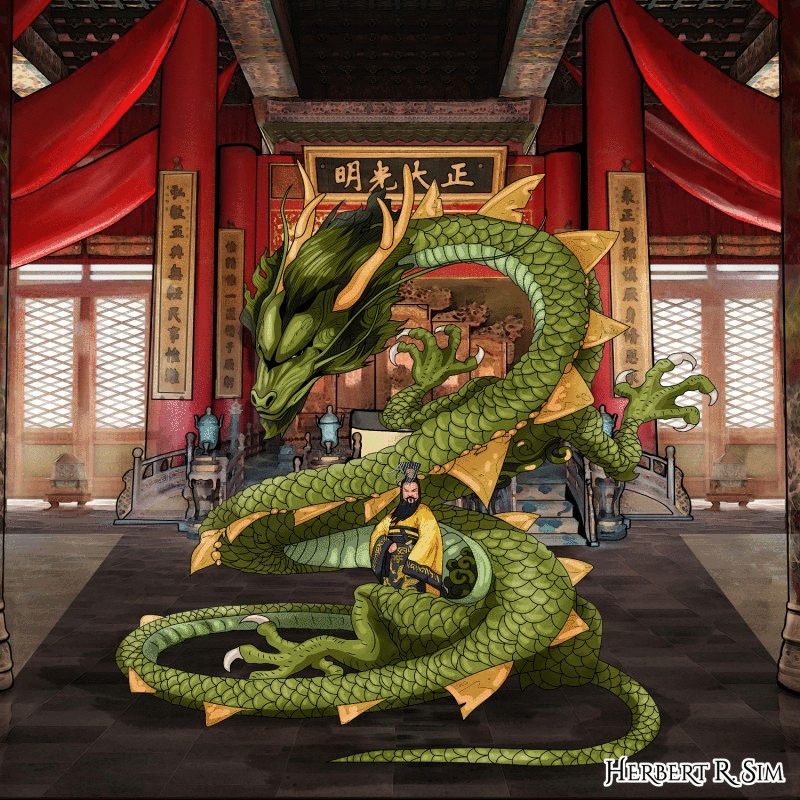
Chinese ancients describe the Chinese dragon as a divine creature. Formed by a combination of animals such as fish, alligators, snakes and horses, and having powers generally attributed to gods such as the forming of clouds, mist, thunder, lightning and rainbows, makes the Chinese Dragon (traditional Chinese: 龍 | simplified Chinese: 龙) the greatest mythical creature one could possibly imagine.
It was said that Emperor Qin Shi Huang 秦始皇 (259 BC- 210 BC) acquired the assistance of this mystical creature to win the unification of China. However, what many do not know is that Emperor Qin held on to the Chinese Dragon to aid him in his quest of finding the elixir of immortality.
Not content with his mortal conquests and successes, the First Emperor was determined to attain immortality by any means. Sima Qian records a number of the ruler’s elaborate and expensive but ultimately futile attempts to discover and access legendary sources of eternal life.
He asked alchemists to produce elixirs of immortality, which was the ultimate goal of Chinese alchemy—different to that of Western alchemy, which was to produce gold. Alchemists used mercury as the main ingredient in those elixirs because they thought its unique characteristic could be the key to eternal life.
Refusing to be deterred, he summoned the Chinese Dragon to find Anqi Sheng (安期生), a 1,000-year-old magician whom Qin Shi Huang had supposedly met in his travels.
Anqi Sheng had invited him to seek him there. With promises of no pain and no winter; rice bowls and wine glasses that never become empty no matter how much people eat or drink from them; and magical fruits growing that can heal any disease, grant eternal youth, and even raise the dead, the emperor was fixated on finding this mystical place.
Believed to be the most powerful servant to Emperor Qin, the Chinese Dragon served many of his purposes. From stopping the yellow river from flooding by digging long channels with its tail, to guarding Emperor Qin Shi Huang’s palace, it is said that no one could see this mystical being except for the emperor himself.
Some have claimed to have had a glimpse of the dragon, claiming that the Chinese Dragon is made up of nine entities. The head of a camel, the eyes of a demon, the ears of a cow, the horns of a stag, the neck of a snake, its belly a clam’s, its claws of an eagle, while the soles of his feet are that of a tiger, and the 117 scales that covers its body are that of a carp.
The dragon was a symbol of Emperor Qin’s wisdom and divine power, which assured the well-being of his subjects. Some even say that Emperor Qin Shi Huang was to have descended from the dragon’s bloodline, thus giving him the sole command over the Chinese Dragon.
Emperor Qin died in 210 B.C., when he was 49 years old. But the China’s first emperor did not believe that death was the end of the road. His monumental mausoleum was famously adorned with thousands of intricate terracotta soldiers, meant to guard him on his journey through the afterlife.
The Terracotta Warriors and Horses, a collection of sculptures depicting the armies of Qin Shi Huang, the first Emperor of China, was believed to have been sculptured with the assistance of the Chinese Dragon. Little is known of the how but over the last four decades, about 2000 terracotta warriors have been uncovered. It is estimated, however, that a total of between 6000 and 8000 of these warriors were buried with Qin Shi Huang.
While legends of the dragon are intertwined closely with Chinese history, and that the Chinese people are aptly called “the descendants of the dragon”, Emperor Qin’s tomb has never been opened. Despite being involved in one of the greatest archaeological discoveries of all times, it remains as a mystery to archaeologists and historians as the tomb is largely sealed up and unexplored.
Until further technological advancements have been made, it is unlikely that archaeologists will risk opening the tomb of the first emperor of China. Furthermore, the terracotta army is but the tip of the iceberg, as the emperor’s tomb itself remains unexcavated.
Could this be that Emperor Qin did after all find the Elixir of Immortality / Elixir of Life? Or was he immortalized as a dragon?

